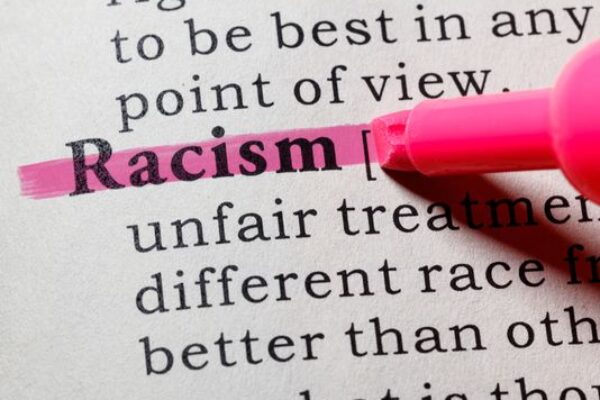President Donald Trump said he recently banned anti-racism training in the federal government because the training is racist and is teaching people to hate our country. This mirrors language in an executive order that attempts to define talk of racial inequities in the United States as anti-American. This action and language add to a pattern of gaslighting efforts to make Americans fear that the rights of white people are at risk or that they have something to fear from increased awareness of racism in the county.
But that could not be further from the truth. This country needs to embrace meaningful and impactful anti-racism training that is supported by the federal government.
People need to be taught about the significance of the enduring and current legacy of slavery as well as the enduring legacy of the genocide of Indigenous Americans. Racist actions and beliefs through promoting individual awareness of bias is needed. But it is even more important to promote the awareness of the pervasive racist impacts and outcomes of U.S. laws, policies and practices throughout history and to the present.
Trump says we have to “go back to the core values of this country” and that anti-racism is “very bad ideas and frankly, very sick ideas.” His comments disregard the country’s history of racist oppression and the formation of the United States as a country based on the norms of patriarchal whiteness for the benefit of a few. Acknowledgement of the history of racism in this country is an important piece in understanding the background of the institutional and systemic racism existing today.
From programs for housing and health insurance to criminal justice to education and health care, bias and systemic racism must be met with a critical eye and an awareness of what we are all doing, sometimes unintentionally, to perpetuate the problem. The voices of Black and brown people and their experiences with racism need to be listened to and believed; anti-racism training needs to be centered around these experiences. White people, including me and certainly the Trump administration, are not experts on Black and brown experiences and never will be. There are many, many voices with experience speaking right now. It’s just a matter of listening.
The federal government and other large employers in the United States need to use this time of change to invest in anti-racism training. Training and trainers are more sought-after now than they ever have been. Training needs to go deeper than diversity and inclusion to address the systemic racial biases that, even when unintentional, lead to disparities in areas such as hiring, salaries, promotions and leadership. The federal government must critically examine outdated social policies that were based on white norms and that negatively affect communities of color across our country still today. That task can’t be effectively undertaken without education.
Training content should be centered around the voices of employees of color while making sure that Black and brown employees are not required to do all the work. White people need to be invested, committed and prepared to make mistakes. The content of these trainings should be tailored to specific audiences to best connect with their backgrounds and values.
Content should also cover the definition of racism itself to allow participants to examine its nuances and understand that it goes beyond individual, conscious beliefs. That racism exists, without intent, just because it has been built into many of the structures of this country, needs to be recognized and discussed.
The gaslighting needs to stop. White supremacy is not patriotic. Anti-racism training is not un-American. Anti-racism discussions are one of the most positive actions we can take in this country right now to bring the change we need to truly ensure equal rights for all.
Cossy Hough is an assistant dean and a clinical associate professor in the Steve Hicks School of Social Work at The University of Texas at Austin.
A version of this op-ed appeared in the Houston Chronicle.




